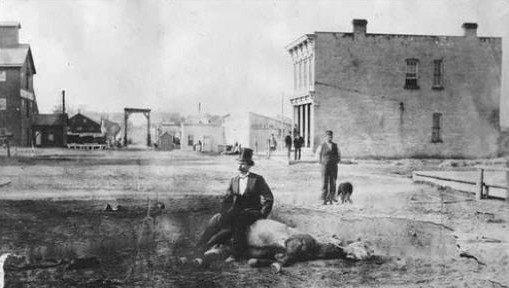“I saw the most amazing movie last night. You’ve got to see it,” Jane says.
“Tell me more,” says Mary.
“Well, Ryan Gosling stars in it. And also Jennifer Lawrence.”
“My favorite actors,” says Mary.
“They have a hot romance going on in the movie…”
“Sounds great…”
“And there’s this scene where Ryan has his shirt off and…”
“Say no more,” says Mary. “I’m going!”
“And he takes his shirt off and all of a sudden this horrible thing pops out of his chest and…”
“What?”
“This creature from another dimension pops out…”
“What kind of movie is this?”
“Sort of science fiction/horror…”
“Ugh. Forget it. I hate horror movies.”
What’s wrong with this conversation?
In an attempt to persuade her friend Mary to see the movie, Jane made a big mistake – a mistake that is very common in the world of business: She continued to sell the product after the customer was already sold.
In their textbook Hospitality Sales: Selling Smarter,
Judy A. Siguaw and David C. Bojanic said:
If you have made a good presentation and the prospects are satisfied that the benefits offered will improve their situation, and are believable, any further presentation is overselling. Overselling can create, in the mind of the prospects, a feeling of disbelief as to the validity of the owner benefits. It can also result in the loss of favorable attention because excessive repetition of benefits and use of other motivational tools can lead to boredom or confusion, which, in turn, causes an unfavorable emotional reaction.
In other words, “overselling” will kill your sale.
You can prevent this from happening by learning how to recognize the moment your customer is ready to buy. If you continue to sell beyond this point, her enthusiasm for the product is going to wane. Not only that, but you risk saying something – like Jane’s description of the creature bursting from Ryan Gosling’s chest – that will quash her interest in an instant.
In this regard, people who do their selling face to face have an advantage over those who do their selling via direct mail or the Internet. By paying close attention to the effect their words are having on their customers, they can custom tailor each sales presentation. If the customer looks doubtful, they can pile on proof of their claims. If the customer looks confused, they can clarify the point they’re trying to make by restating it – over and over again, if need be.
And when a customer begins giving signals that he is ready to buy, astute salespeople know the time is right to swoop in and close the sale.
These are the clues they look for in the customer:
- A relaxed position – arms open, facing the salesperson
- Excitement in the eyes
- Nodding the head
- Oral affirmations – saying “yes,” “right,” “uh huh”
When you are writing direct-mail or online sales copy, you don’t have signals like these to guide you. So you have to find another way to keep your sales message on track. To my knowledge, there isn’t any generally accepted way to do this. But I’ve experimented with a few techniques, and have hit upon one that works pretty well.
I’m talking about putting your copy through a peer review.
The process I recommend is the same one that many of my best clients use. Basically, here’s how it works:
You put together a group of five or six people – ideally, experienced marketers and copywriters. You ask them to rate the various parts of your copy – the headline, lead, body, and close – and give specific suggestions for improving them. You also ask your reviewers to indicate any sections that are boring, unbelievable, or confusing. And you ask them to highlight the point in the copy where they feel ready to buy.
That point should be about two-thirds to three-quarters of the way through the copy. If it comes much earlier, you know you have to delete some of the “overselling” you do after that point and move directly to the close. (If it doesn’t happen at all, you know you have to completely revamp the sales copy and make it stronger.)
Don’t make the mistake Jane made and “talk” yourself out of a sale. You’ll be blowing a perfectly good opportunity… and you’ll never know why.
 MarkFord
MarkFord






